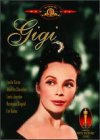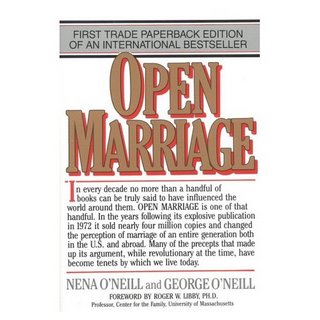
My husband and I finally watched
“Memoirs of a Geisha” one evening. It was a beautiful film. The costumes were rich, the acting was graceful. I couldn’t help but think it was a re-make of
“Gigi,”. The only connection was that both movies concerned the training of young girls to be courtesans. In “Geisha” the young girl moved up from apprentice to full-fledged geisha when her virginity was sold to the highest bidder. The goal for both a Parisian courtesan and the geisha was to secure a benefactor, a patron who would provide for her. Marriage was not the intended outcome for these women. Geisha sure sounds prettier than shack-up-honey or kept woman, doesn’t it? But that’s what she is.
Chiyo/Sayuri was sold by her fisherman father to become a geisha. Her life was miserable, filled with little kindness. Treated as a slave, she was beaten for wrongs she had not committed. She had no future of her own, no hope for any better life. “Geisha” ends on a very pretty note. Sayuri not only attains her dream of becoming a celebrated geisha with a sponsor, he is also the one with whom she has been in love since she was a very young girl. This is a love story. Still, there will be no marriage.
As for Gigi, she hardly knew any better than to become a courtesan. Her mother and grandmother were both Parisian courtesans. It was the family business. Both her mother and grandmother were famous courtesans. Eventually the free-spirited Gigi also succeeds in

becoming a real head-turning lady’s man. She is the envy of gay Paris club society when long-time friend Gaston debuts her at his side.
Yet Gigi breaks with family tradition when she refuses Gaston’s first offer, that of being simply her sponsor without the privileges of marriage. She will have none of it. Is that love, she asks him, to have her made a laughingstock by his eventual infidelity and to be then tossed out into the streets? To have their private life made public knowledge? To be treated as less than a wife?
Gigi’s grandmother and mother are devastated by Gigi’s refusal of Gaston’s proposition, only to be elated when he returns and proposes marriage. Gaston’s love for Gigi has flowered into repentance. There can be no illicit relationship with this one- or another now that he is to be a husband. The household shattered by grief and despair is resurrected in jubilation by the return of bridegroom for his bride.
Things are not the same for “Geisha.” She becomes the “half-wife” to the Chairman, his “wife of the night.” Sayuri offers us a disclaimer of sorts. She says that hers was not the tale of an empress or a queen, but of a geisha. So we should not be disappointed, she says.
OK, so what are we to make of “Geisha”? If it her story was not offered as a tale to elicit disappointment for her sake from us, what was the tale supposed to do? First, “Geisha” was based upon actual events. Second, empathy ought to at least allow us to consider the fact that Chiyo/Sayuri had no real choice in her fate; nine-year-olds who are sold off by their fathers to be geishas generally do not have a say in the matter. Likewise, Gigi had little to say in the course of her training as a Parisian courtesan.
So what is the big deal with this film, “Geisha”? Is it even fair to compare it to “Gigi,” which is fictional and culturally disassociated to it, as well?
Here’s the Big Deal: Did you put a price on your virginity?
I ask that seriously, but I honestly don’t want any real answers.
Virginity goes cheap these days. Usually goes for as low as a movie, burger, coke and fries. Maybe a shake. Or a pizza. Certainly not as high as the bid for Sayuri’s virginity. No sireee! The Baron paid enough for that piece to pay off all her debts, plus sock away a tidy sum. Let’s get real: A prostitute by any price is still a hooker even if she’s not a streetwalker. And what does that make the guy involved? So what does that make any gal who trades off for a burger and coke? Oh, I forgot. Youngsters in love? Not always. It is simply called “hooking up” on today’s campuses. That’s the terminology for quick, non-involved sex. Huh?

The irony of the term is priceless. It originates in Nena and George O’Neill’s book,
Open Marriage, popular in 1972. (Sometimes it pays to be so ancient! I was there when this was all the craze!)
Open Marriage was a feminist, liberal (redundant, I know) proposal for rescuing tired, boring marriages by- guess what- promiscuity. The idea was for each partner to seek out other partners, discover as many different “hook up” points about the others, and, well… relate. “Hooking up” has now devolved simply to mean one particular point of reference at which even dogs in heat casually passing each other on the street and never expecting to or even caring about seeing each other again will join themselves for a few brief moments. In other words, he’s got an “outie,” she’s got an “innie.” So they can hook up. That’s as far as the relationship goes. “Hooking,” and “hooker” also refer to that which some women are paid for with about the same emotional depth as the dogs in heat have encountered. How deliciously ironic!
Sayuri’s caveat that her tale was not that of wife or an empress tagged onto “Geisha” may have been correct insofar as the facts of the situation. However, in an arena that promotes the promiscuity of women and men, her words are hollow and her tale resounds as a promotion of more of the same. The most important line in the film was “Every step I have taken in my life has been to bring myself closer to you.” Yup. Love makes it all OK. So in the end of it all, “Geisha” is about choice. We are not all wives. We are not all empresses. But we all may choose. Choose your own path, women, and achieve your dream. Along the way, sell whatever commodity you have to the highest bidder.
What is the price of chastity? Gigi’s “No” still rings clearly nearly half a century later as witness against drivel like “Geisha.” It turned a courtesan into a wife, a gigolo into a husband, grief into jubilation. Quoting Roger Scruton, F. Carolyn Graglia (Domestic Tranquility; Spence Publishing, 1998. p. 344.) uses a marvelous term, “individualizing intentionality.” One who regards another in this light recognizes that one is an irreplaceable individual, not merely an instrument of sexual release. That one is to be known from the inside out, as a “creature who is part of oneself.” This is the Hebraic sense of knowing, as when a husband knew (
[dy) his wife. “Individualizing intensity” aptly describes how God both set apart and pursued His wife, Israel (Ho 2:2; Ze 8:8). This is not the choice of the Bride, but of the Groom Himself. He chased and sought his intended until He made her His own.
Paul’s description of the Bridegroom, Christ, and His Bride flows from the gift of Baptism.
Husbands, love your wives, just as Christ also loved the church and gave Himself for her, that He might sanctify and cleanse her with the washing of water by the word, that He might present her to Himself a glorious church, not having spot or wrinkle or any such thing, but that she should be holy and without blemish. Eph 5:25-27
Virginity might last until marriage vows are spoken, but chastity goes before and remains after. The price for chastity is marked by Christ’s own. He remained the unspotted Lamb for our sakes in order to take our sin upon Himself at the cross and then gives His righteousness to us in Baptism (Ro 6:3-4). Not with gold or silver, but with His holy, precious blood and His innocent suffering and death He redeemed us poor condemned persons by His flesh hung and blood poured out upon the cross. Christ takes a woman who has been soiled with sin- in Hosea God likens the church to a prostitute- washes her clean, and makes her His own chaste Bride. Not just
as if she were sinless, but actually proclaims her to be sinless. What Jesus says is so is so. What He declares to be righteous is righteous. The Bride of Christ- men and women alike- are His baptized. She is His Queen, made so by His Father’s will.
“Geisha’s” value lies in its catechetical opportunity. In
Women Who Make the World Worse, Kate O’Beirne exposes Rebecca Walker, the daughter of Pulitzer Prize-winning novelist Alice Walker. She was recognized by
Time magazine as one of the nation’s top 50 future leaders. Walker is routinely sought for speaking engagements on campuses as a guest lecturer. She and her lesbian partner are raising a son. She has edited an anthology,
What Makes a Man: 22 Writers Imagine the Future. In her autobiography,
Black, White & Jewish, she recounts her own first sexual encounter at eleven, and her abortion at fourteen. She frequently lectures at events like San Jose’s 2004
Girls for a Change Summit. Against this tide of moral influence, who is teaching our children? What is teaching our children? How are they being catechized? “Little Blue” –
CPH now features it in red leather – hardly gets equal opportunity, especially if parents remain silent.






